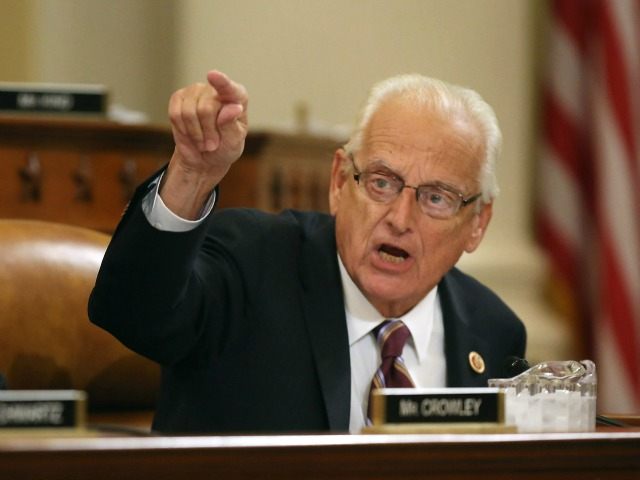A Democrat Congressman is blasting the Trans-Pacific Partnership (TPP) trade deal — which impacts 40 percent of the world economy, consists of 12 countries and was made public on Thursday — saying it includes “exclusions up the wazoo.”
“The text that I’ve read so far includes annexes and exclusions up the wazoo,” Rep. Bill Pascrell (D-NJ) told Politico. “You think you’ve seen it all? You have not. Exclusions to rules by each country. Bilateral deals with Japan, and more than 50 two-way side letters.”
Politico reports aspects of the deal that reveal certain countries were given exceptions. For example, “how Peru can continue to limit performances by foreign circuses or that Chile can still ban foreigners as security guards.”
“The exceptions, laid out in multiple annexes and embedded in various chapters of the 1,000-plus page Trans-Pacific Partnership agreement, range from these obscure provisions to controversial measures that could make it harder for U.S. businesses to compete overseas — and not incidentally, cost congressional votes where there might be no margin for error for passage,” noted Politico.
According to Politico’s Adam Behsudi, the agreement makes it harder for American construction companies to win bids in Malaysia, as that country maintained preferential treatment for government projects. “Mexico won language to prevent foreign companies from filing disputes challenging certain Mexican laws that cover everything from oil extraction to railways. That could anger some U.S. companies that feel wronged by Mexican policies,” Behsudi also noted.
U.S. Trade Representative Michael Froman said the agreement will advance American values in the growing Asia-Pacific region.
“Other countries, such as China, are already moving forward with deals that don’t reflect our interests and our values,” Froman said. “Failure to pass TPP would come at a high price here at home: jobs lost, wages cut and opportunity squandered.”
Froman said foreign governments were able to win exceptions within the agreement by comparing that to the commercial impact on American businesses.
“In the example of Malaysia, the final deal laid out a sliding scale, allowing Malay businesses to get greater preference for smaller projects, while larger procurement bids, which are more interesting to U.S. firms, would provide fewer advantages,” Behsudi reported.
“It’s an absolutely central policy there, absolutely central to their politics,” Froman explained of Malaysia. “They would not be able to participate in TPP if they were not accommodated in one form or the other for what is a defining feature of their political system.”
Politico reports the U.S. was able to maintain advantages given to small or minority-owned companies that bid on government contracts as well as “include rules that establish fair competition between private companies and state-owned enterprises, which some regard as a signal to China that membership in TPP would require drastic economic reforms.”

COMMENTS
Please let us know if you're having issues with commenting.